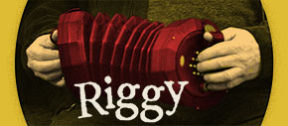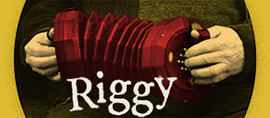It was The Beatles’ fault. They came along when bar mitzvah lessons had ceased, making room for music lessons, and demonstrated how to make girls scream.
They made a different kind of music, with neat baroque chords and words that mattered. They first made the English really cool to me. My dad had set me up to be receptive to their message, bringing me to his favorite Greenwich Village haunts, with coffee and guitars and other folks who spoke words that mattered. My first guitar teacher, Bream-devotee David Harris, sprang from that same milieu, and instilled an appreciation for those modes not found in doo-wop and blues. Soon I was playing Scarlatti and thumbing through the more obscure record bins on 8th Street and in the Folklore Center. And it was those special records that brought me to England a few years later. But the line was a fairly straight one.
New York was the cultural focus for my whole family. Way before my Dad was taking me to the Village, Mom decided I was special and set me up with several New York agencies to get modeling and acting jobs.


In the mid-’60s I performed with a rock and roll band called Richard and the Young Lions, playing electric bass. We had a record that was a hit in some West Coast and Midwest markets, but not in our home market, as New York was having a radio announcer strike in the summer of 1966. We got airplay, but nobody knew who it was because they never SAID who was playing!

I had a choice that the band’s success presented me: continue touring with the group or go back and finish high school. Not only did I stay in school, I took on folk music as my focus in place of rock ‘n’ roll.

The following year I moved to Philadelphia to go to college. Even though I attended Temple University, in my sophomore year I fell in with a bunch of art student musicians at Philadelphia College of Art. I met John Specker there and we ended up working together for years afterward. Our partnership is detailed on the Concertina page of this site.
In the mid-’70s I was asked to be part of an ambitious bicentennial production by the Cambridge, Massachusetts Proposition Theatre. The goal was to weave entries from actual ships’ logs and traditional whaling songs into a true-to-life dramatic presentation. I found the music, taught the actors how to sing in an authentic style, serving as Music Director, and provided concertina accompaniment. The Whale Show succeeded to considerable acclaim, and we toured the show in New York and throughout New England.

Ten years later in San Francisco I got to yell and make faces playing Lt. Rooney in Arsenic and Old Lace.


